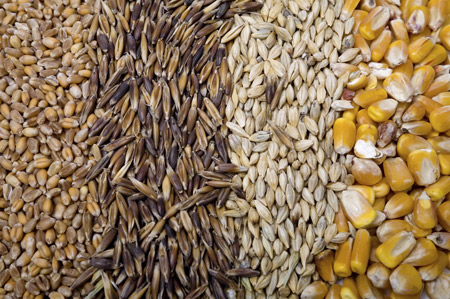 (Businessweek) – Wheat declined for a second day on forecasts for warmer temperatures in parts of the U.S., potentially capping yield losses from freezing weather in the world’s largest exporter.
(Businessweek) – Wheat declined for a second day on forecasts for warmer temperatures in parts of the U.S., potentially capping yield losses from freezing weather in the world’s largest exporter.
The contract for delivery in July lost as much as 0.3 percent to $7.0025 a bushel on the Chicago Board of Trade. Futures were at $7.01 by 10:56 a.m. in Singapore on volume that was 61 percent below the 100-day average for that time of day. Prices earlier gained as much as 0.3 percent.
Temperatures are expected to average near to above normal, while precipitation will average near to below normal in parts of the Northern Plains, DTN said in a report yesterday. Farmers probably will abandon 25 percent of their hard, red winter wheat, the most since a drought in 2006, as freezing weather hurt the crop, according to the average of 11 analyst estimates compiled by Bloomberg.
“Crop concerns linger,” Luke Mathews, a commodity strategist at Commonwealth Bank of Australia (CBA), wrote in a report today, referring to the U.S. winter-wheat crop. Forecasts for warmer temperatures have outweighed the bullish influence of the recent freeze damage, he said.
In the European Union, the likelihood of full crop potential is “somewhat compromised” in northern and central Europe, as a cold March delayed growth for winter crops, the Monitoring Agricultural Resources unit said yesterday. The EU is the largest wheat shipper after the U.S. in the year through June 30, according to the U.S. Department of Agriculture.
Corn for July delivery fell 0.2 percent to $6.225 a bushel. Soybeans gained 0.2 percent to $13.67 a bushel.
Exporters in the U.S., the world’s largest shipper last year, sold 174,000 metric tons of soybeans to China for delivery in the year that begins Sept. 1, the USDA said yesterday. That adds to the 5.087 million tons that the world’s biggest buyer has purchased from the U.S. as of April 11 for the next marketing year, USDA data show.




